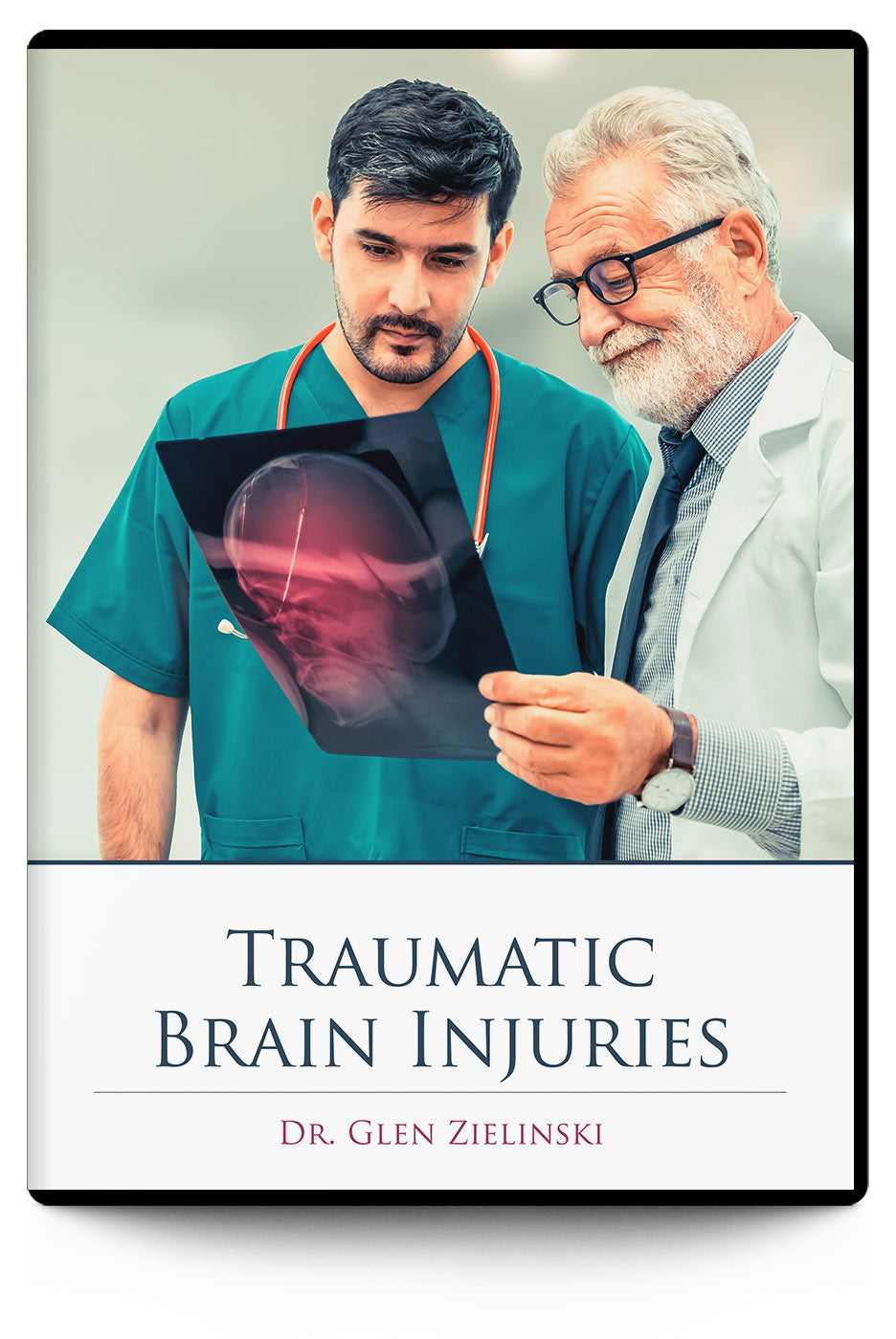Description
Description
Traumatic brain injuries (TBIs) and their associated disorders provide a complex array of symptoms that can permanently disable an injured person. While cognitive changes are most common, TBIs can impact more than just the cognitive changes demonstrated on neuropsychological evaluations.
In this video, functional neurologist Dr. Glen Zielinski explains the neurological aspects of a traumatic brain injury and associated conditions such as vestibular and visual disturbances. This lecture discusses methods of objectively demonstrating TBIs in ways that cannot be influenced by malingering, somatoform disorder, or depression—each a common defense in TBI litigation cases.
- Topics covered in this lecture include:
- Vestibular/Balance Changes after a TBI
- Visual Dysfunction After a TBI
- Sleep Disturbances after a TBI
- Immune System Damage and CTE after a TBI
- PTSD and Depression after a TBI
- Gastrointestinal Changes after a TBI
- Autoimmune Conditions after a TBI
- Seizures after a TBI
- Endocrine/Hormone Dysfunction after a TBI
This lecture also discusses why systemic health problems can worsen over time after a TBI and result in permanent health consequences that result in substantial economic and noneconomic damages for a TBI survivor. This lecture will provide important insights for any lawyer or doctor who handles TBI cases—improving the understanding of everyone, from beginners to those with substantial TBI expertise.
*Please note: This video includes highlights from an exclusive live event. Due to copyright and other restrictions, this DVD does not include any written materials from the conference. To learn more about our upcoming CLE events, visit our CLE page or give us a call at 1-800-309-6845.
Traumatic Brain Injuries from Trial Guides on Vimeo.
Author
Author
Details
Details
DVD: 164 minutes; 1st edition (2019); ISBN: 9781951962029
Publisher: Trial Guides, LLC
Table of Contents
Table of Contents
- Introduction
- Objectively Validating Traumatic Brain Injuries
- Primary, Secondary, and Tertiary Brain Function
- Proprioception
- Vestibular Changes
- Visual System
- What Is the Role of Functional Neurology in TBI?
- Video Nystagmography
- Computerized Dynamic Posturography
- Vestibular Head Impulse Testing
- Considering Causation with Objective Testing
- Vestibular Head Impulse Testing in Determining Acute versus Chronic
- Movement Disorders after TBI
- Literature on Visual Dysfunction after TBI
- Literature on Vestubular Dysfunction after TBI
- Sleep Disturbances after TBI
- Hippocampus Damage and Hippocampal Loss
- Increasing Neuronal Damage after TBI
- Microglia Activation, Immune System Damage, and CTE after TBI
- Sleep Apnea after TBI
- Post TBI Sleep Deficit Increases Risk of Neurodegeneration (Alzheimer’s, CTE, etc.)
- PTSD and TBI
- Post-Traumatic Depression after TBI
- Gastrointestinal Changes after TBI
- Causation and Impact of “Leaky Gut Syndrome”
- Genetic Factors Predisposing People to PTSD
- Autoimmune Conditions after TBI
- Dysautonomias after TBI (Including Changes in Blood Pressure and Heart Rate)
- Seizures after TBI
- Endocrine/Hormone Dysfunction Post TBI
- TBI Case Study




